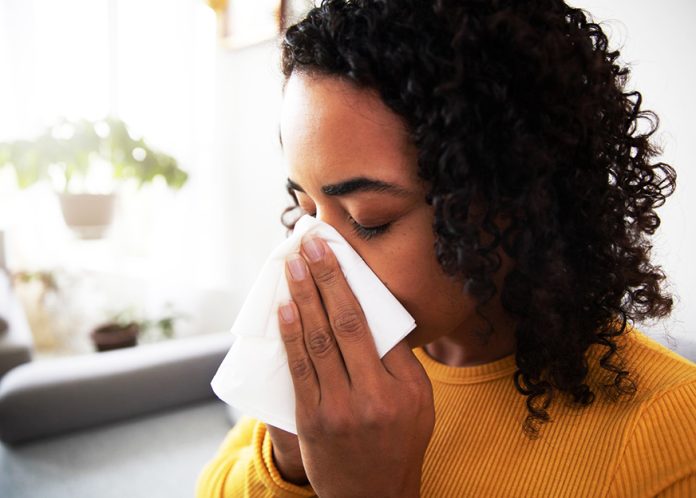Some people sneeze like crazy. Others get itchy hives or watery eyes. But whatever the reaction, it boils down to one thing: allergies.
If you have allergies, you have lots of company. As many as 30% of U.S. adults and 40% of children are in the same boat as you.
While your problem may seem to start in the nose or the eyes, allergies actually come from an immune system running wild.
Learning why these reactions happen can help you keep things under control and feel better.
Why Allergic Reactions Happen
Your immune system has an important job: to defend your body from invaders such as bacteria and viruses that mean you harm.
But when it makes war on substances it shouldn’t, that’s an allergy.
Peanuts, eggs, or pollen, for example, can trigger reactions. They are called allergens.
During a reaction, your immune system releases antibodies. These are proteins that deliver a message to cells: Stop that substance! The cells then send out histamine, which causes blood vessels to expand, and other chemicals, and these trigger the allergy symptoms.
These antibodies are singled-minded. Each one targets only one type of allergen. That explains why someone might be allergic to peanuts but not to eggs.
You can come into contact with allergens in many ways: through the skin, eyes, nose, mouth, or stomach. This can cause your sinuses to clog up, inflame your skin, make it harder to breathe, or cause stomach problems.
What Things Most Often Cause an Attack?
Why do some people have such bad allergies and others don’t? Experts don’t have all the answers, but they say family history is important.
Some common allergens include:
- Animal dander
- Bee stings
- Certain medicationssuch as penicillin
- Dust mites
- Foods — particularly peanuts, tree nuts, fish, shellfish, eggs, milk, wheat, and soy
- Insect bites
- Latex or other materials you touch
- Mold
- Plants and pollens
The Symptoms, From Itchy Eyes to Sneezing
Your allergy attacks might range from mild and annoying to more severe and even life-threatening. It all depends on the way your body reacts and how much of the allergen got into your system.
If your allergy is severe, you may have a serious reaction called anaphylaxis. Some cases could be life-threatening and need urgent attention.
Here are some common types of allergies:
Hay fever: Also known as allergic rhinitis, it can cause:
- Sneezing
- Runny or stuffy nose
- Itchy eyes, nose or roof of mouth
- Red, swollen, watery eyes — a condition known as allergic conjunctivitis
Food allergies: You may feel tingling in your mouth. Your tongue, lips, throat, or face might swell up. Or you could get hives. In the worst cases, you might have anaphylaxis and will need medical help right away.
Eczema: Also known as atopic dermatitis, it is a skin condition. Most types of eczema are not allergies. But the disease can flare up when you’re around things that cause an allergic reaction. Your body’s immune system overreacts to substances, called allergens, that are usually not harmful. You might get hives, itching, swelling, sneezing, and a runny nose. You might have it if you have itching, redness, and peeling or flaking.
Medications: If you’re allergic to a certain drug, you may get a rash, facial swelling, or hives. You could find yourself wheezing. In severe cases, you may develop anaphylaxis.
Stings: If you’re allergic to bees or other insects you may get:
- A large area of swelling, known as edema, at the site of the sting
- Itchingor hives all over your body
- Shortness of breath, wheezing, chest tightness, or a cough
As with some other allergies, such as food and medication, a severe reaction to a sting can lead to anaphylaxis.
Source: webmd.com










